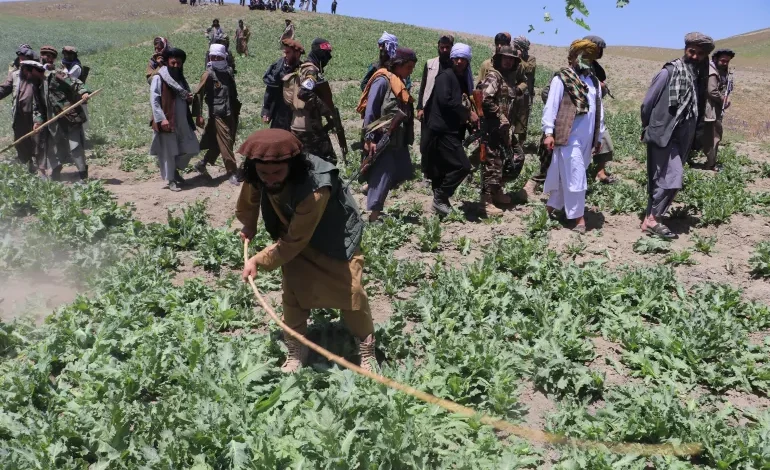Despite a Taliban-imposed ban on opium poppy cultivation, production has increased by an estimated 19% in 2024, Al Jazeera reports, citing a new report by the United Nations Office on Drugs and Crime (UNODC).
While the increase is concerning, the report, published Wednesday, highlights that the cultivation area still remains significantly lower than the pre-ban levels. In 2024, the cultivated area amounted to 12,800 hectares (31,629 acres), a stark drop from the 232,000 hectares (573,284 acres) cultivated before the prohibition in 2022.
The ban, implemented in April 2022, led to a 95% drop in opium farming by 2023, a positive development hailed by the UN. “This is important further evidence that opium cultivation has indeed been reduced, and this will be welcomed by Afghanistan’s neighbours, the region and the world,” stated Roza Otunbayeva, UN Special Representative for Afghanistan.
However, the report reveals a shift in cultivation patterns. Opium poppy cultivation has moved away from its traditional southwest heartland to northeastern provinces, particularly in Badakhshan, where cultivation surged by 381% in 2024. The report attributes this shift to the ban, as farmers seek less monitored areas to cultivate poppies.
The UNODC report also points out that the ban has resulted in a significant rise in opium prices, making poppy cultivation an attractive option for struggling Afghan farmers. Prices have stabilized at around $730 per kg, a significant increase from pre-ban averages of about $100 and surpassing the “20-year peak” of $408 recorded in August 2023.
Many farmers in Afghanistan, one of the poorest countries in the world, have been financially impacted by the ban, struggling to find comparable profits from alternative crops. Even legal crops offer only a short-term solution, according to the International Crisis Group, which stresses the need for job creation in non-farm industries.
In May, clashes erupted in Badakhshan between farmers and brigades sent to destroy their poppy fields, resulting in several deaths. The mountainous province, bordering China, has become a focal point for poppy cultivation in the wake of the ban.









